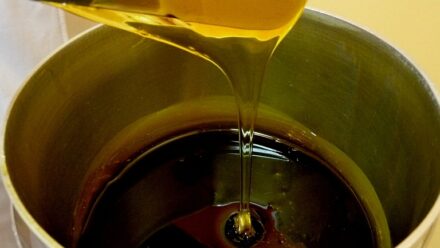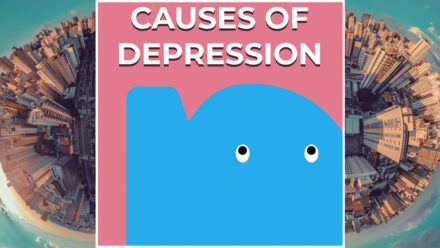
Hanxiety is a so called portmanteau word. These are popping up like mushrooms these days. They’re words that are created by putting two separate words together, like ‘cronut’ or ‘hangry’.
The first one is a combination of croissant and doughnut, the second a combination of hungry and angry. Though words like this didn’t just start to appear over the last few years – we’ve been using words like ‘brunch’ (breakfast and lunch) or ‘motel’ (motor and hotel) for decades – they’re definitely becoming more ubiquitous. And whilst some of them are light-hearted and fun to say, like ‘chillax’ (chill and relax), others carry a much heavier load. One of the latter has recently caught my attention: ‘hanxiety’. This is a contraction of the words ‘hangover’ and ‘anxiety’. It refers to the possible psychological symptoms of a hangover, and something that is very real.
Hanxiety: Hangovers
We all know about the physical effects a night of heavy drinking can have on us. Headache, tiredness, sweating, nausea, trembling, and high blood pressure are just a few examples. But binge drinking can also affect our psychological state. It can cause us to feel depressed, or anxious. It can even lead to us having panic attacks.
This is also known as hanxiety – anxiety as a result of a hangover. Anxiety and alcohol are definitely connected. It is quite common for a person who feels stressed or anxious to drink alcohol to stop feeling that way. In fact, number show that roughly 25 per cent of people with an anxiety disorder use alcohol as a – albeit an unhealthy – coping mechanism. And even though it may help, it will only be temporarily. The day after, the anxiety will be back, and it will possibly have gotten worse, and thus, the person will drink again. This can create a dangerous cycle, because the occurrence of one, triggers the other.
What causes these psychological symptoms?
Alcohol messes up our hormone levels, sleeping pattern, and brain function. This means neither the body nor the brain are getting a proper rest. This can make it hard for a person to think rationally, which can lead to non-rational fears and overthinking. As well as that, the way in which alcohol affects our bodies can lead to psychological symptoms. It’s a well-known fact that alcohol dehydrates us, and lowers our blood sugar.
This can then lead to the heart beating faster, and dizziness; both very similar to what yo feel when you get anxious. So these physical symptoms are interpreted by the brain as stress, worry, and panic. Lastly, when you drink alcohol, your serotonin and dopamine (happy hormones) levels go up, which leads to the aforementioned temporarily happy feeling. However, when the alcohol wears off, the serotonin and dopamine levels go down, which can increase anxiety as well.
Healthier ways of dealing with anxiety and stress
The most obvious thing for me to advise is to stay away from alcohol. However, as a woman with a history of depression, eating disorders, and an unhealthy relationship with alcohol, I know it is not as easy as that. Once you’re stuck in that cycle, it is very difficult to break it. Especially when you suffer from withdrawal symptoms, like tremors, nausea and vomiting, sweating heavily, insomnia, loss of appetite, and of course, anxiety and depression.
In some cases, quitting cold turkey could even be dangerous. If you’re struggling to stop drinking, seeking help from a medical professional is a good idea. They can advise you on how to cut down and eventually quit.
Other ways of staying mentally stable are, for example, spending time in nature, exercising, eating healthily, practising mindfulness, or doing something creative. Not all of these work for everyone, but when you find one that helps you, try to stick with it.
Happy new year to all of you, and thank you for reading this blog (combination of web and log 🙂)
Note from the writer:
According to NHS figures, over seven and a half million people in the UK show signs of alcohol dependence. They probably know hanxiety as well. If you are struggling controlling your alcohol intake, and suspect you may be alcohol dependent, please don’t suffer in silence. Try talking to someone about it and getting help. It doesn’t necessarily have to be a medical professional. It could be a friend, family member, or someone at a local Alcoholics Anonymous meeting, Please know that you are not alone.
S. Taplin

Suzette Taplin is a Dutch woman, residing in the south-east of England. She is married to a Brit, and has a twelve year old stepson and a six year old son. She works as a swimming instructor, as well as a translator for PsychoseNet.nl.
She has a history of depression, eating disorders, and alcohol abuse, and feels passionate about the work she does for the Foundation, and hopes it reaches and inspires many others who may be struggling with mental health issues.
More about mental health:




Comments: